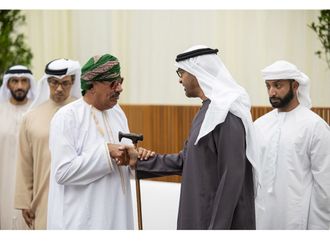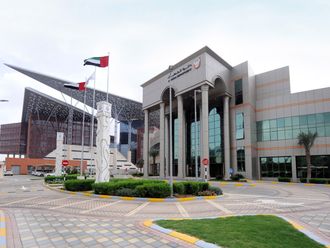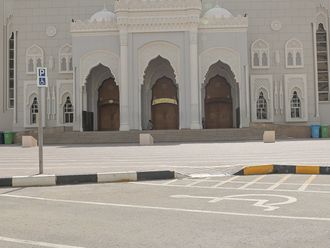
On September 9, the first day of autumn classes, the UAE’s federal higher education institutions ushered in a new era in the education sector with the historic launch of the Federal Higher Education Mobile Learning Initiative. The UAE’s efforts to radically transform its education sector resulted in the largest nationwide mobilisation of mobile learning — using handheld tablet devices — in higher education in the world.
Future-proofing the nation’s education system by aligning it with international standards is also pegged to the UAE’s Vision 2021.
Speaking at the launch, Dr Tayeb Kamali, Vice-Chancellor of the Higher Colleges of Technology (HCT), said: “With this emphasis on innovation in education we are ensuring our students will have the necessary skills of adaptability, information technology and analytical thinking so that they make important contributions to the UAE and enable them to succeed in a changing world.”
First inspired in April by Shaikh Nahyan Bin Mubarak Al Nahyan, Minister of Higher Education and Scientific Research, the initiative led to all three federal institutions — HCT, United Arab Emirates University and Zayed University — being commissioned to harness mobile learning technology. The landmark project will benefit 55,000 students in the UAE.
Using mobile tablet technology that enables a unique anytime-anywhere learning environment, the programme focuses on cutting-edge teaching methods developed by UAE faculty along with curated content by Apple Education and CORE Education and Consulting Solutions, a global education solutions provider.
The system engages students to become co-creators of their own learning environment through collaborations with their peers and faculty. “The idea is to look past traditional lecture-based learning and challenge the students to engage, research and arrive at the outcomes through real-time collaboration,” says Dr Jace Hargis, Director of the Abu Dhabi Women’s College and Khalifa City Women’s College and member of the federal mobile initiative steering committee.
The team brought together teachers from across the nation to discuss their teaching methods, the tools they use and how their collaborative approaches could be used to create a working model that could be dispensed or leveraged via technology.
The first phase covers mathematics and English, with information technology and business studies to be added in the spring semester.
As the programme evolves, plans are on to make the models available to the public primary education and private higher education sectors as a resource and open reference model. In addition, the federal institutions are looking to register as Federal iTunesU on Apple’s iTunesU education platform.
“In recent history, Web 2.0 has changed consumers into creators. The post-PC era is about humanising technology and enabling people to leverage technology to become more engaged as collaborators. Humanism and social emotional competencies is what will ultimately create more jobs and support the economy,” says Dr Hargis.










